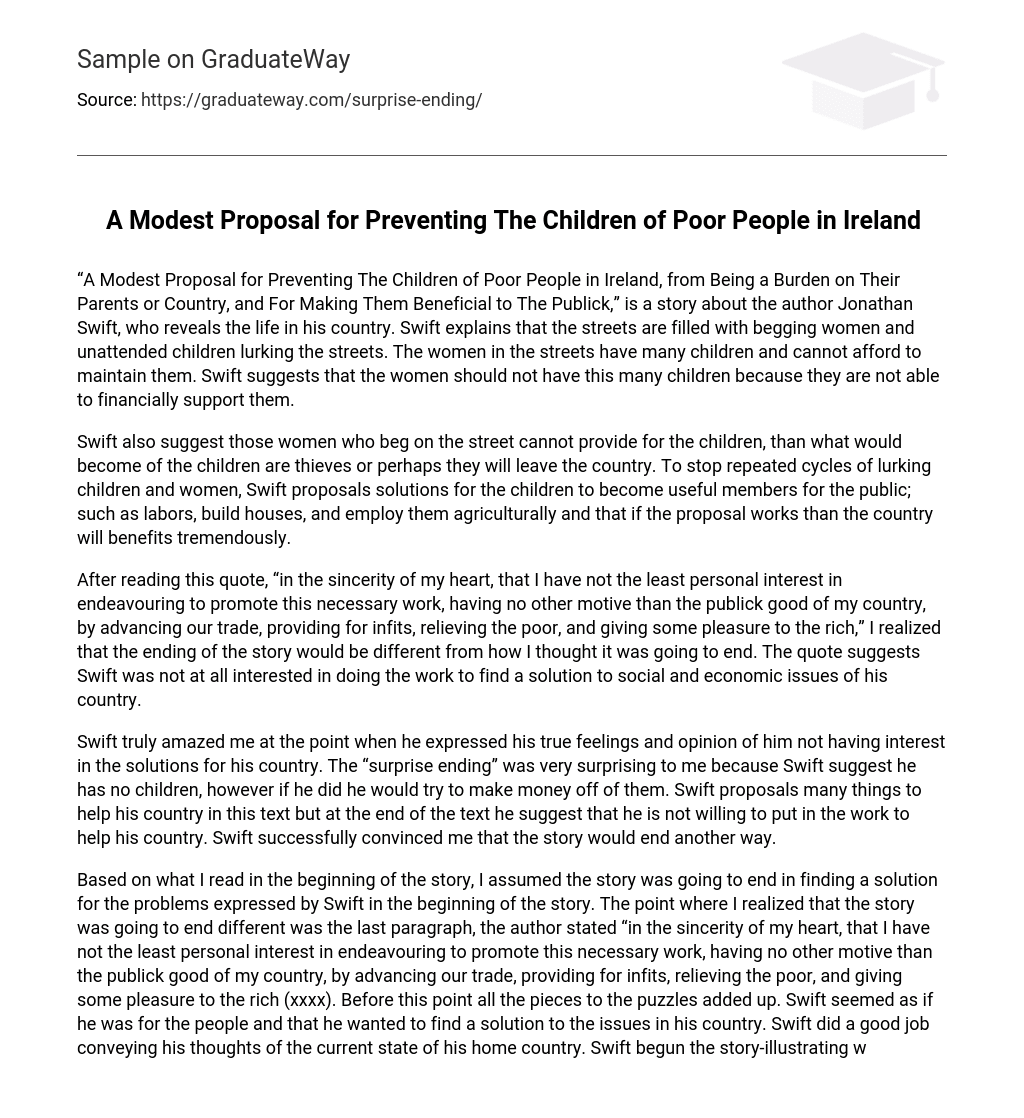“A Modest Proposal for Preventing The Children of Poor People in Ireland, from Being a Burden on Their Parents or Country, and For Making Them Beneficial to The Publick,” is a story by Jonathan Swift that portrays the struggles of the Irish community. Swift highlights the presence of numerous beggars and unsupervised children on the streets. These women, who are unable to support their large families, are suggested by Swift to consider having fewer children to alleviate their financial burden.
Swift states that when women who beg on the street cannot support their children, it may lead to the children resorting to thievery or even fleeing the country. To break this cycle, Swift proposes solutions such as involving the children in labor, constructing houses, and engaging them in agricultural activities. He is confident that if this plan succeeds, the country will reap substantial advantages.
Upon reading the quote, I discovered that the outcome of the story would differ from my initial assumptions. The quote highlights Swift’s dedication to his country’s welfare, including improvements in trade, support for infants, reduction of poverty, and fulfillment for the wealthy. Thus, it implies that Swift’s efforts to address social and economic issues in his country were not self-serving.
Swift’s lack of interest in finding solutions for his country was truly astonishing to me. The text took an unexpected twist when Swift hinted at not having any children but still benefiting from them if he did. This revelation was incredibly surprising. Despite presenting several proposals to improve the nation, Swift ultimately reveals a reluctance to put in the necessary effort. Swift skillfully convinced me that the narrative would take a different direction.
After reading the initial part of the story, I inferred that it would lead to a resolution of the issues mentioned by Swift. However, I was surprised by the final paragraph which indicated a different ending. The author affirmed that their intention was solely to benefit the public good of their country by boosting trade, supporting infants, aiding the poor, and bringing joy to the wealthy.
Up until this moment, everything appeared coherent. Swift demonstrated support for the public and a willingness to address issues in his homeland. He skillfully conveyed his observations about the present condition of his country. To begin, Swift illustrated a scene of women with their children begging on the streets, emphasizing that these children would not be valuable members of society. Throughout, he consistently advocates for alternative methods to raise these children by proposing engaging them in productive work such as labor, construction, and agriculture.
Last but not least, Swift discusses his proposal to assist the natives and explains what should be done. However, Swift’s plan for the unexpected conclusion of his story was not explicitly hinted at. He intentionally misled his audience into thinking that the story would have a positive ending. Consequently, Swift effectively convinced me that the outcome of the story would not be as anticipated.





